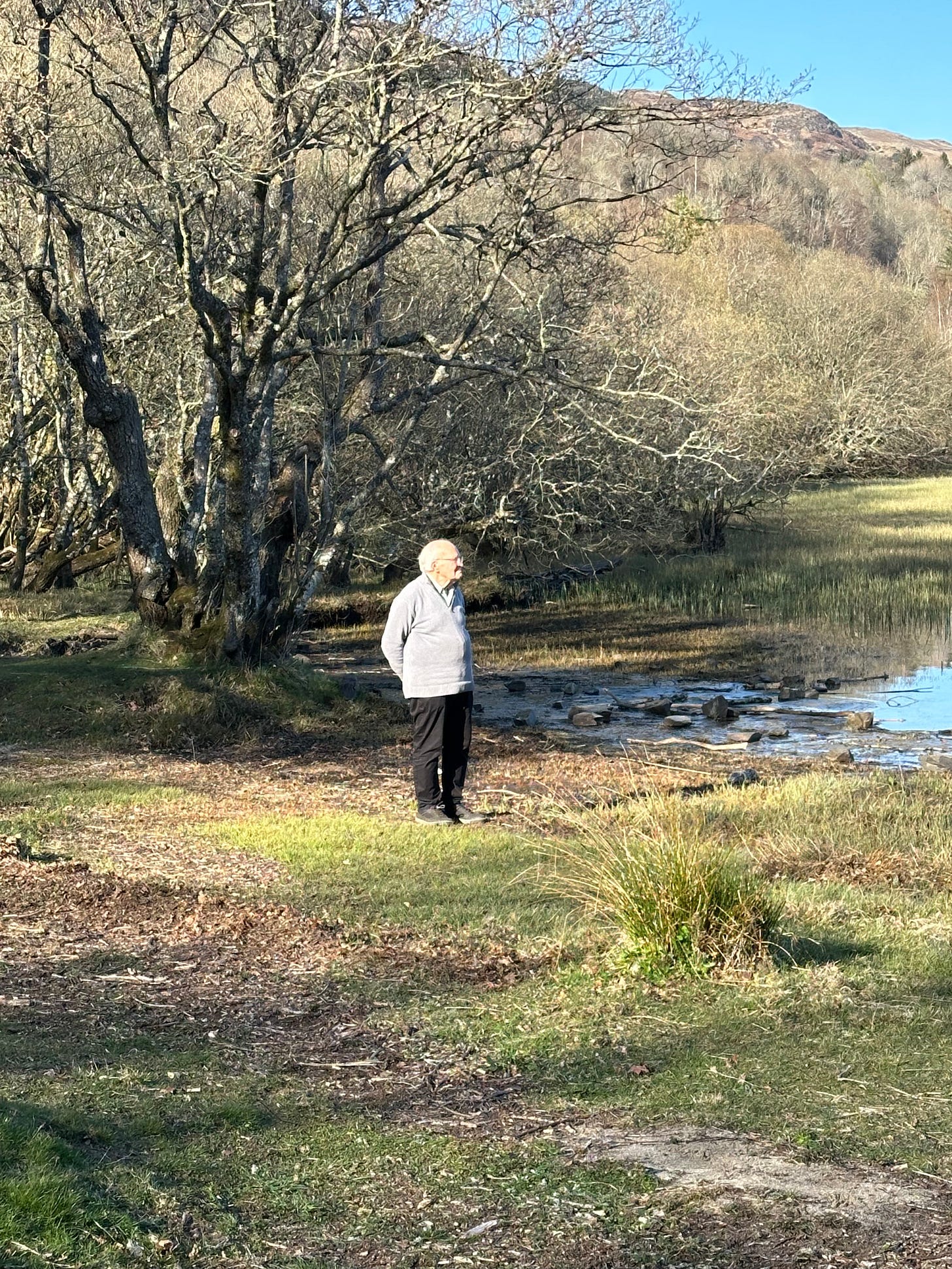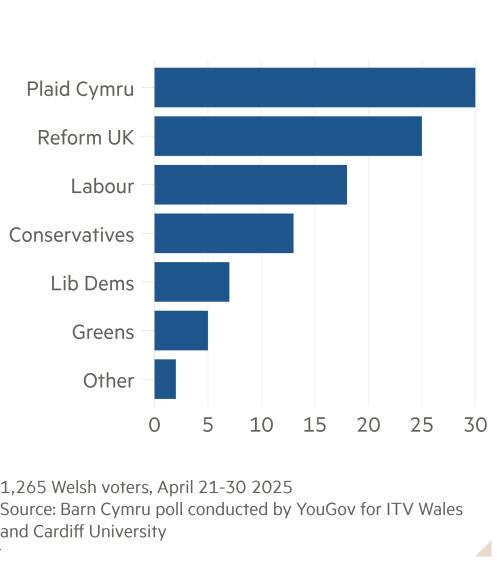A coalition willing change
Scotland needs new faces, new policies, new heart: a fresh government that can take on and see off Reform in 2026 and thereafter.
Reward for two decades of failure (SNP)? Last throw of the democratic dice with the authoritarian Far Right (Reform UK)? A year out from the May 2026 Holyrood elections that's the unpalatable choice dangled by those parties' leaders - and some polls - before voters. We Scots can surely do better. The Hamilton by-election result points the way forward…
First Minister John Swinney, pitching himself as a good shepherd uniting his flock in the manner of a Kirk elder, is raising the spectre of Nigel Farage as the next UK premier on "an ill wind of change” but Reform came third in Hamilton, albeit with 26% of the vote or more than it’s polling across Scotland. Zia Yusuf, Reform's Bellshill-born chair, talks of winning power in Westminster with 300-400 MPs in 2029 on the basis of this month's (partial) English local elections. This is over-excited balderdash. And he’s been squeezed out of office by Farage and his posse.
Swinney rightly says Keir Starmer has "opened the door to Farage" over immigration and, most disturbingly, use of phrases such as "incalculable damage" and "island of strangers." Instead, Starmer should be promoting pro-integrationist policies such as investment in tailored education/training courses and, as my German friend/colleague Sophie Pornschlegel told last weekend's Festival of Europe in Edinburgh on how to counter the Far Right:
"This is the time for citizens to engage in collective action, community work, go to protests, and relearn civil disobedience if necessary. This is not the time to retreat into private life, even if the news is depressing. Civil society plays a hugely important role to resist the far-right…” This is far more effective than tacking to the right and appeasing Reform in the hope of winning back its voters.
The real story of the Mayday elections in England was that more Conservative voters (one in four) switched to Reform than Labour ones (almost one in five) and this is a pattern repewsated in Hamilton. As Peter Kellner has said, Labour should worry more about its former 'progressive' supporters among Liberals, Greens and, I add, the SNP. There's more than four years to the next general election by which time Reform will have had plenty of time to screw up in those small towns/counties where it has won power with a posse of 'green’ politicians - and the ferrets-in-a-sack infighting, the hallmark of all Farage political vehicles, is already playing havoc with its prospects.
What's more, the UK electorate as a whole is not anti-EU or anti-immigrant - far from it. Reform's victory in England's very limited elections, heavily skewed by first-past-the-post, comes as voter sentiment is increasingly anti-Brexit or, at the very least, critical of the economic damage wrought by leaving the EU. Plus, the Brits are among those most hostile to Farage's friend, President Donald Trump.
So, yes, the rise of Reform is certainly more substantial than that of, say, UKIP in the past and that's truer of Wales than it is of Scotland so far, as these polling figures show:
Constituency
Alba 1%
Con 11%
Lab 19%
LibDem 11%
SNP 33%
Reform 19%
Greens 5%
Regional List
Con 12%
Green 9%
Lab 18%
Alba 3%
LibDem 10%
Reform 20%
SNP 29%
(Research by Survation for True North Advisors)
Co-opposition revisited
Plaid, of course, has never won power in Wales though it did support the minority Labour government in the Senedd through three years (2021-24) of a cooperation agreement John Osmond has called co-opposition: defending and fostering social democratic, progressive, pro-EU policies against the Faragistas and Tories. I've argued for a similar arrangement (mariage de convenance) between the SNP and Labour in Scotland.
That's unlikely on current polling such as the one above which, according to John Curtice, would give the SNP 58 seats and Labour just 18 compared with 21 for Reform and 13 for the Conservatives while the LibDems would win 10 and the Greens 8 at Holyrood. On that basis the SNP and Greens could revive their tense coalition (66 seats among 129 MSPs) but whether that's likely or desirable is open to question. Either way, Labour is way off course for gaining or sharing power compared with where it was just 10 months ago. And deservedly so.
Scottish Labour, under Anas Sarwar, continues to behave like a branch office of UK Labour and the latter under Starmer is performing, to say the least, underwhelmingly across the board of socio-economic and foreign policies. It is, in Margaret Thatcher's word, frit. Afraid of Trump. Feart of upsetting the rich and powerful. Terrified of Farage. All too ready to resolve or just mitigate financial problems by squeezing the poor, disabled and elderly. We shall see if there’s any change of direction in the spending review on June 11.
Sarwar will only win seats and get closer to power by differentiating Scottish Labour from the UK party and asserting distinctive policies such as taking control over immigration or promoting renewed membership of the EU's single market. Wholesale constitutional reform, both at Westminster and Holyrood, wouldn't go amiss either. And this remains the case even with the Hamilton victory.
There's a public appetite for such an approach in my view. The SNP is ahead on current polling not because of its record in government or popular support for independence (50%) but because Swinney has steadied its ship and put it in a centrist course. His Programme for Government is non-threatening but also underwhelming.
Hard to disagree with Craig Dalziel when he writes in Common Weal:"...It’s not entirely clear from his (Swinney's) policies that he knows where that course is set to take us. When it comes to Scotland’s economy, it looks very much like it’s just a repeat of his three predecessors’ plans which were 'attract foreign companies, sell them Scottish assets, celebrate when they extract profits'”.
Across the piece - education, health, council tax, equality, even climate change targets - the SNP's record in the past 18 years has been mediocre to poor. It beggars belief that, even with a lot of new faces on its benches in May 2026, it will dramatically improve in the five or so years ahead. We are deeply provincial as a society under its guiding hand despite efforts to reach out internationally.
That's why - in the middle of tectonic turbulence geopolitically - a progressive coalition that can see off Reform with or without the shrunken Conservatives - just 6% in Hamilton - in its pockets would be the most desirable outcome of Holyrood 2026. A coalition of the ready, willing and able set on initiating reforms that will usher in transformative change and give genuine hope to a disillusioned, alienated people.






I think you are too critical of the SNPs record. Child poverty is off the scale in the north of England. 20 years ago, Scotland was tracking with that, now it’s doing as well or better than the south of England. That’s the result of long term commitment and policy choices, much of it quite small scale. Educational attainment is also improving and the attainment gap is also narrower than anywhere else in the UK. A and E waiting times are also really a lot better.